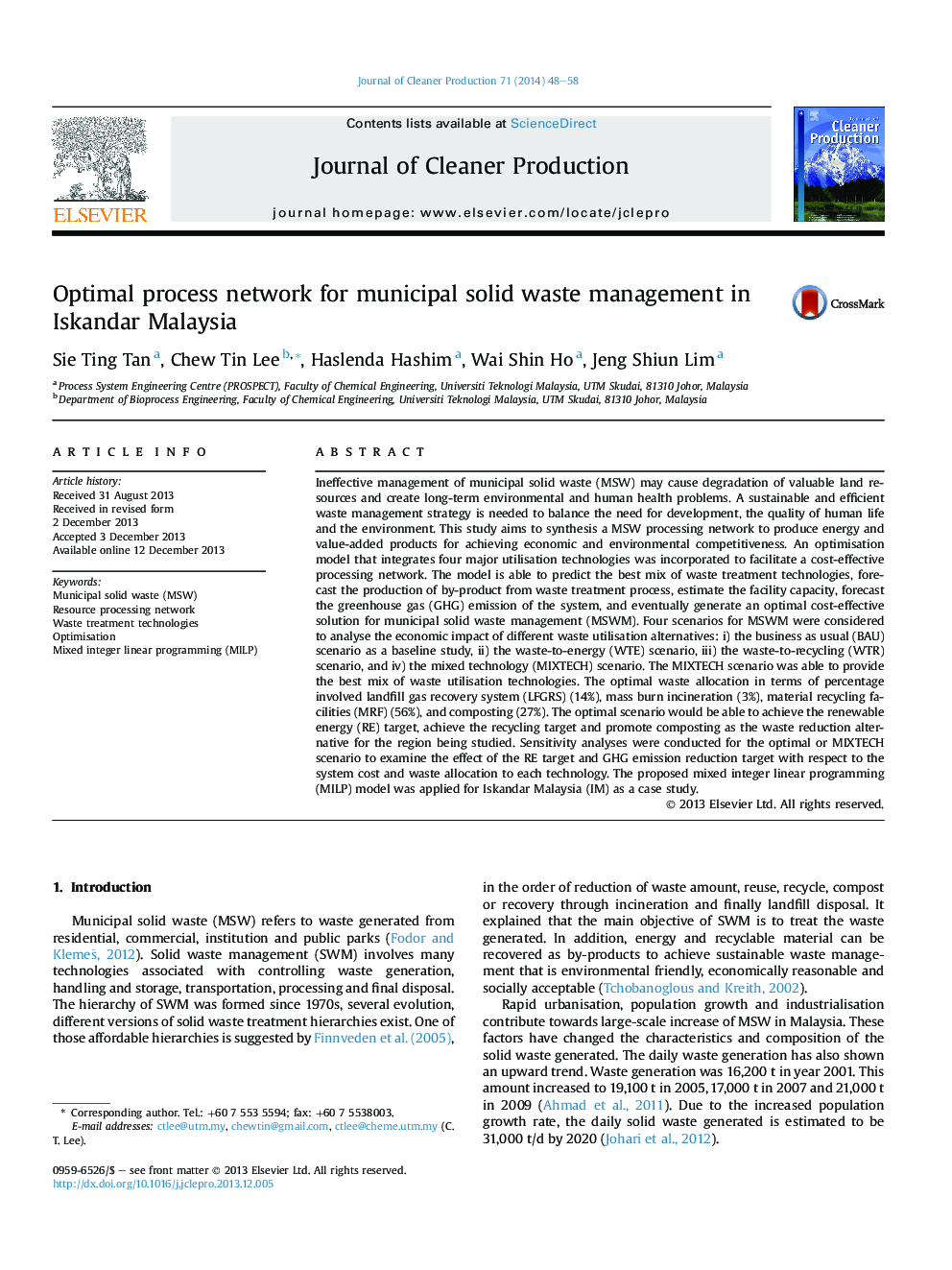| کد مقاله | کد نشریه | سال انتشار | مقاله انگلیسی | نسخه تمام متن |
|---|---|---|---|---|
| 1744918 | 1522175 | 2014 | 11 صفحه PDF | دانلود رایگان |
• Optimisation model of processing network for municipal solid waste management (MSWM).
• Integration of several waste utilisation technologies.
• Cost-effective and GHG emission analysis for MSWM with different scenarios.
• Sensitivity analyses on energy demand and GHG emission reduction targets for MSWM.
Ineffective management of municipal solid waste (MSW) may cause degradation of valuable land resources and create long-term environmental and human health problems. A sustainable and efficient waste management strategy is needed to balance the need for development, the quality of human life and the environment. This study aims to synthesis a MSW processing network to produce energy and value-added products for achieving economic and environmental competitiveness. An optimisation model that integrates four major utilisation technologies was incorporated to facilitate a cost-effective processing network. The model is able to predict the best mix of waste treatment technologies, forecast the production of by-product from waste treatment process, estimate the facility capacity, forecast the greenhouse gas (GHG) emission of the system, and eventually generate an optimal cost-effective solution for municipal solid waste management (MSWM). Four scenarios for MSWM were considered to analyse the economic impact of different waste utilisation alternatives: i) the business as usual (BAU) scenario as a baseline study, ii) the waste-to-energy (WTE) scenario, iii) the waste-to-recycling (WTR) scenario, and iv) the mixed technology (MIXTECH) scenario. The MIXTECH scenario was able to provide the best mix of waste utilisation technologies. The optimal waste allocation in terms of percentage involved landfill gas recovery system (LFGRS) (14%), mass burn incineration (3%), material recycling facilities (MRF) (56%), and composting (27%). The optimal scenario would be able to achieve the renewable energy (RE) target, achieve the recycling target and promote composting as the waste reduction alternative for the region being studied. Sensitivity analyses were conducted for the optimal or MIXTECH scenario to examine the effect of the RE target and GHG emission reduction target with respect to the system cost and waste allocation to each technology. The proposed mixed integer linear programming (MILP) model was applied for Iskandar Malaysia (IM) as a case study.
Figure optionsDownload as PowerPoint slide
Journal: Journal of Cleaner Production - Volume 71, 15 May 2014, Pages 48–58
